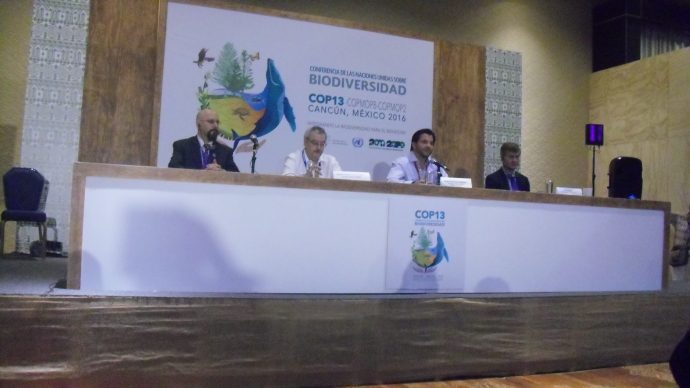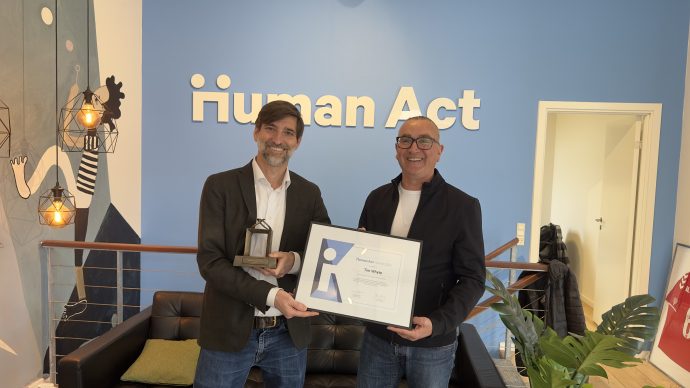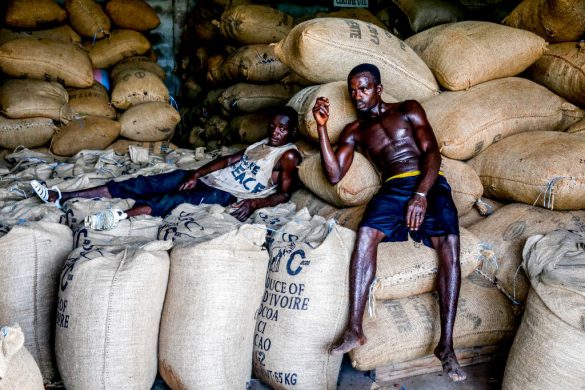Den globale vidensplatform for biodiversitet, IPBES, inviterer nu fagfolk og andre med særlig interesse for naturen til at bidrage til de store vurderinger, som vil komme fra næste år.
Der er tale om regionale vuderinger af naturtilstanden i Afrika, Asien, Europa og de to amerikanske kontinenter samt en særlig undersøgelse af landområders økosystemer.
Det er de tungeste rapporter, som IPBES, der blev etableret i 2012, hidtil har gennemført.
Dansk kontor
I efteråret åbnede det danske kontor for vidensplatformen, og det er herfra, man samler bidragene. Det er dermed en fin mulighed for danske akademikere, NGO'er og andre fagfolk til at bidrage med perspektiver på den globale naturtilstand.
Vurderingerne vil kunne komme til at spille en stor rolle, når verdens nationer under FN forventes at lave nye mål for biodiversitet.
Den nuværende plan, Aichi-strategien, udløber i 2020, formentligt uden at blive realiseret til fulde.
Diskussionerne om en ny strategi for at redde klodens naturmangfoldighed vil være højt på dagsordenen ved næste globale FN-træf om biodiversitet i Sharm El Sheikh i 2018.
Læs mere om IPBES og det danske kontor her:
https://globalnyt.dk/content/naturens-klimapanel-staar-foran-stort-gennembrud-og-koebenhavns-nye-kontor-er-med
Her er den officielle invitation fra det danske IPBES-kontor:
Open reviews of IPBES Assessments coming up soon
IPBES in Denmark is pleased to inform that the period for the external review of the second order drafts of the thematic assessment report on land degradation and restoration and of the four regional assessments (Africa, Asia-Pacific, Americas, and Europe and Central Asia) on biodiversity and ecosystem services, as well as the first order drafts of their Summaries for Policymakers is fast approaching.
Please pencil this in your schedule and distribute this notification further to relevant colleagues or network.
Details
This external and open review period for in total five new IPBES assessments and the associated Summaries for policymakers will take place over eight weeks in two overlapping “windows” this Spring:
From 1 May until 26 June 2017 for:
- The land degradation and restoration assessment
- The three sub-regional assessments for Africa, Asia-Pacific and Europe and Central Asia
From 29 May until 24 July 2017 for:
- The sub-regional assessment for the Americas
(Please see the table below for chapter content of the concerned five assessments)
The above mentioned assessments and summaries are planned to be published after the IPBES plenary session in March 2018 in Colombia.
The IPBES assessments are multi-disciplinary and include e.g. economy, environmental science, biology, social science, cultural studies etc. Thus, all relevant disciplines are hereby invited to participate.
The review process of IPBES is open to all: scientists, experts, NGOs and other stakeholders.
The draft chapters of these assessments, as well as their draft Summaries for policymakers, will be made available online for review during this time. Review comments will be submitted by email on a template.
Please note that it is of critical importance that these peer-review and Governments’ comments in ensuring the quality, credibility and policy relevance of IPBES assessments, and their future use, e.g. their planned contribution to the Convention on Biological Diversity, UN’s Sustainable Development Goals, etc.
To facilitate this, IPBES will be exploring new ways of engaging Governments and stakeholders in this external review processes, by organizing, among other activities, webinars on the content of the Summaries for Policymakers. More information on this will follow closer to the external review dates.
More information
To get further information on the reviews, please e-mail Thor Hjarsen, national IPBES coordinator ([email protected]) or follow us on Facebook, Twitter (@IPBESDanmark) and at our website: www.ipbes.dk.
You are by this mail also invited contact and book IPBES in Denmark for an information meeting at your institution/organization on IPBES, the process and reviews.
About IPBES in Denmark
A Danish national coordination office of The Intergovernmental Science-Policy Platform for Biodiversity and Ecosystem Services, IPBES, was established in the autumn 2016 by University of Copenhagen, University of Aarhus and University of Southern Denmark in co-operation with the Danish Environmental Protection Agency.
The office will secure involvement of Danish based scientists and experts in the international IPBES process and communicate the results of IPBES to relevant Danish stakeholders. More information: www.ipbes.dk.
Denmark has been member of IPBES since the establishment in 2012. Today, the UN associated IPBES has 126 member states and the international IPBES secretariat is located in Bonn, Germany. More information: www.ipbes.net.
Content list of upcoming IPBES assessments for review during Spring 2017
|
IPBES Assessment |
Chapter outline |
|
The land degradation and restoration assessment 2nd order review: 1 May – 26 June 2017
Further info: http://www.ipbes.net/work- |
Chapter 1: Benefits to people from avoidance of land degradation and restoration of degraded land Chapter 2: Concepts and perceptions of land degradation and restoration Chapter 3: Direct and indirect drivers of land degradation and restoration Chapter 4: Status and trends of land degradation and restoration and associated changes in biodiversity and ecosystem functions Chapter 5: Land degradation and restoration associated with changes in ecosystem services and functions and human well-being and good quality of life Chapter 6: Responses to avoid land degradation and restore degraded land Chapter 7: Scenarios of land degradation and restoration Chapter 8: Decision support to address land degradation and support restoration of degraded land |
|
The subregional assessment for the Africa 2nd order review: 1 May – 26 June 2017
Further info: http://www.ipbes.net/work-
|
The sub-regional assessments will all follow the general scoping laid out: http://www.ipbes.net/sites/
Chapter 1: Setting the scene Will present the policy-relevant questions identified for each region and subregion and explain how each assessment reflects the conceptual framework and the framework for the science-policy interface. Chapter 2: Nature’s benefits to people and quality of life Will reflect the conceptual framework boxes “Nature’s benefits to people” and “Good quality of life” and the fluxes between them. It will assess the values of nature’s benefits to people, including the interrelationship between biodiversity, ecosystem functions and society, the geographical difference between the production and use of ecosystem services and the status, trends and future dynamics of ecosystem goods and services and nature’s gifts to people. Chapter 3: Status, trends and future dynamics of biodiversity and ecosystems underpinning nature’s benefits to people Will reflect the conceptual framework box “Nature”, emphasizing the components and fluxes that have an impact on “Nature’s benefits to people”. It will assess what is known about the past and current trends and future dynamics of biodiversity and ecosystems and their positive and negative effects on the key ecosystem goods and services. Chapter 4: Direct and indirect drivers of change in the context of different perspectives on quality of life Will reflects the conceptual framework boxes and fluxes on “Institutions and governance and other indirect drivers” and “Direct drivers”. It will assess the status and trends and future dynamics of indirect drivers, focusing in particular on those affecting “Nature” and “Nature’s benefits to people” as the foundation for “Good quality of life”. It will assess the status and trends in direct drivers, as well as the impact of these drivers on “Nature”, based on future predictions, and analyse the interrelations between and among direct drivers and indirect drivers. Indirect drivers include policy changes, changes in economic activity, population change and technology change. Chapter 5: Integrated and cross-scale analysis of interactions of the natural world and human society Will reflect all the boxes and fluxes of the conceptual framework. It will build on the analysis in the previous chapter and make extensive use of scenarios and modelling in its analysis. It will focus on the key issues that society is expected to face over the next 40 years that will determine the dynamics of the interactions between society and nature. Chapter 6: Options for governance, institutional arrangements and private and public decision-making across scales and sectors Informed by the analysis in previous chapters, chapter 6 will reflect the conceptual framework boxes and fluxes on “Institutions and governance and other indirect drivers”. It will examine different policy ideas and possible options for decision makers at the regional and sub-regional levels in response to the scenario set out in previous chapters, in particular chapter 5.
(Note: for full scoping text follow link at the top of this box). |
|
The subregional assessment for Asia-Pacific 2nd order review: 1 May – 26 June 2017
Further info: http://www.ipbes.net/work- |
The sub-regional assessments all follow the general scoping laid out above: http://www.ipbes.net/sites/ |
|
The subregional assessment for the Europe and Central Asia 2nd order review: 1 May – 26 June 2017
Further info: http://www.ipbes.net/work- |
The sub-regional assessments all follow the general scoping laid out above: http://www.ipbes.net/sites/ |
|
The subregional assessment for the Americas 2nd order review: 29 May – 24 July 2017
Further info: http://www.ipbes.net/work- |
The sub-regional assessments all follow the general scoping laid out above: http://www.ipbes.net/sites/ |















